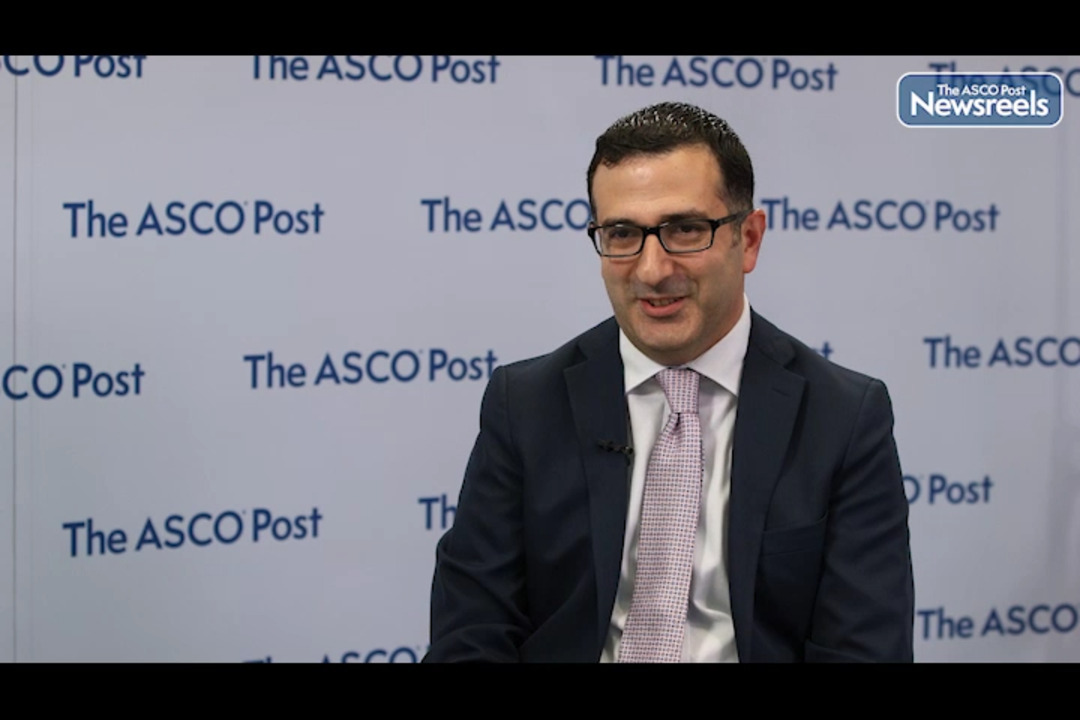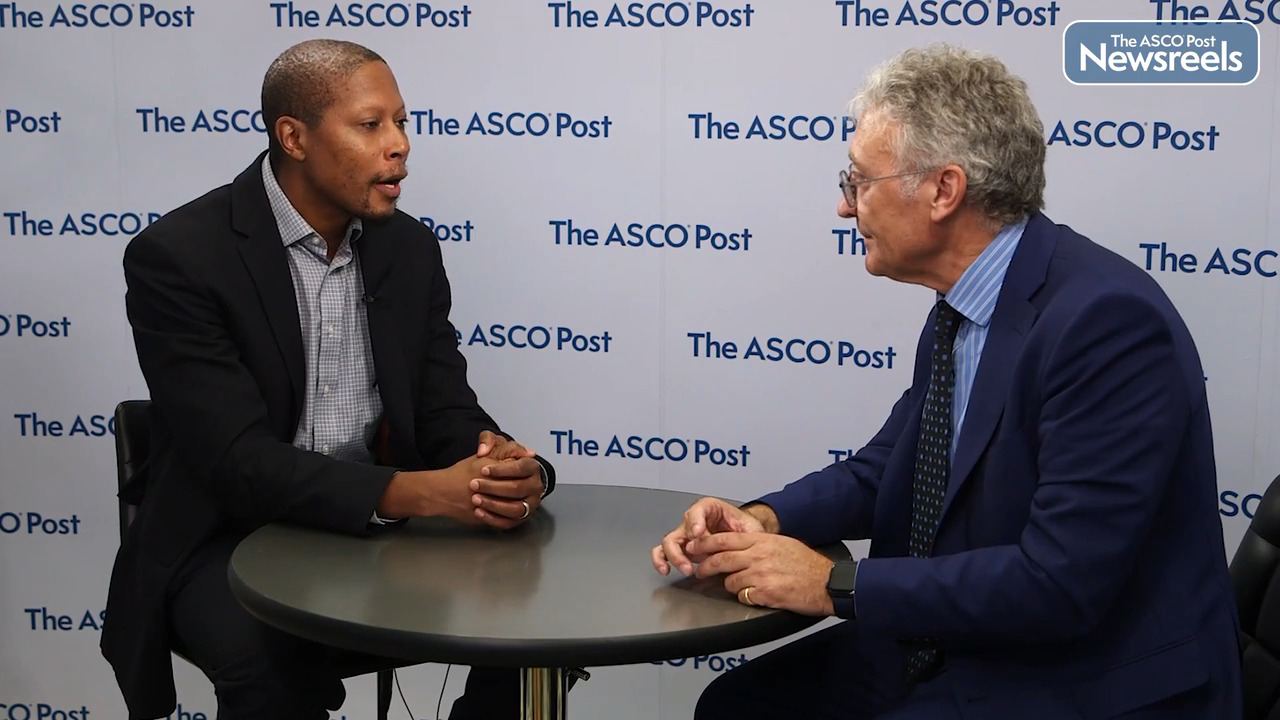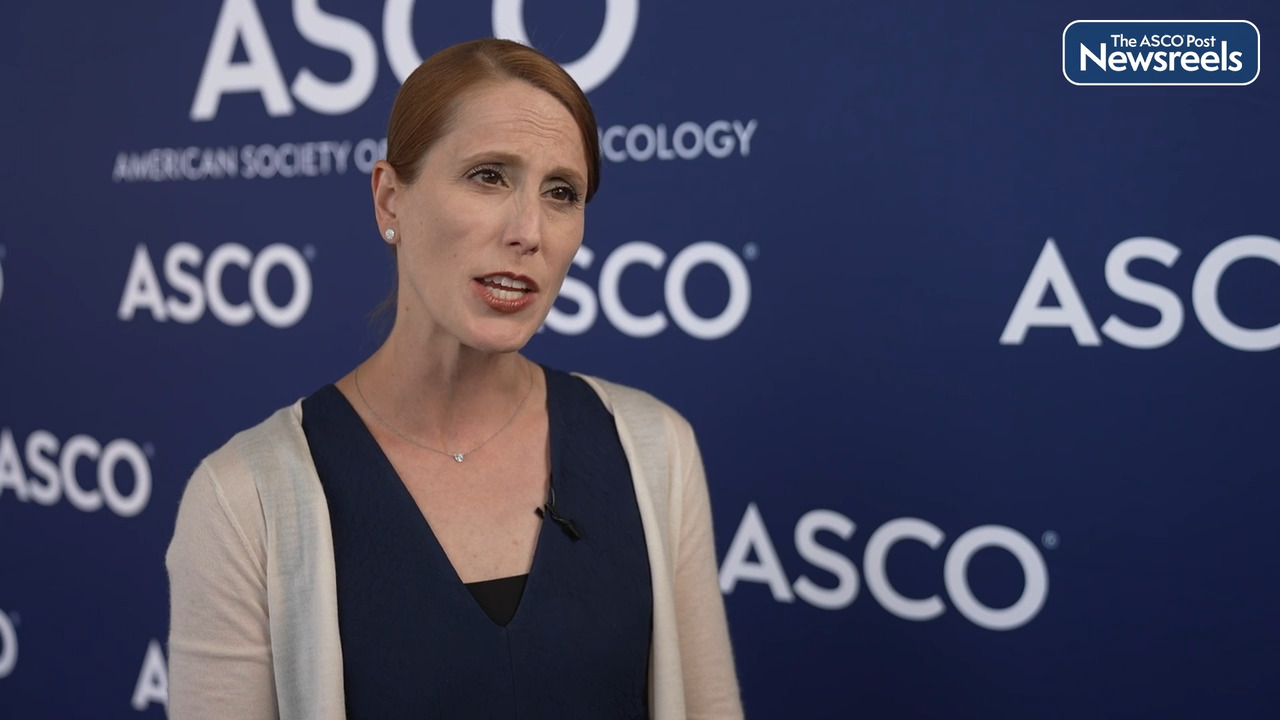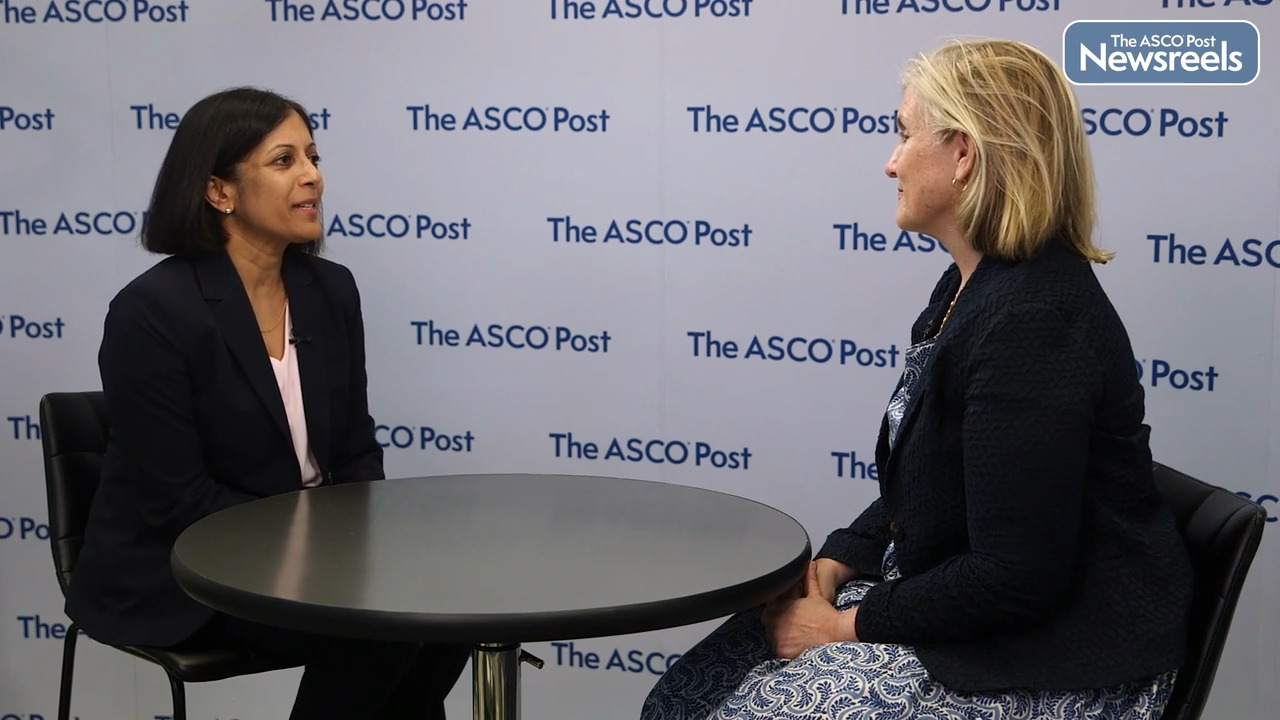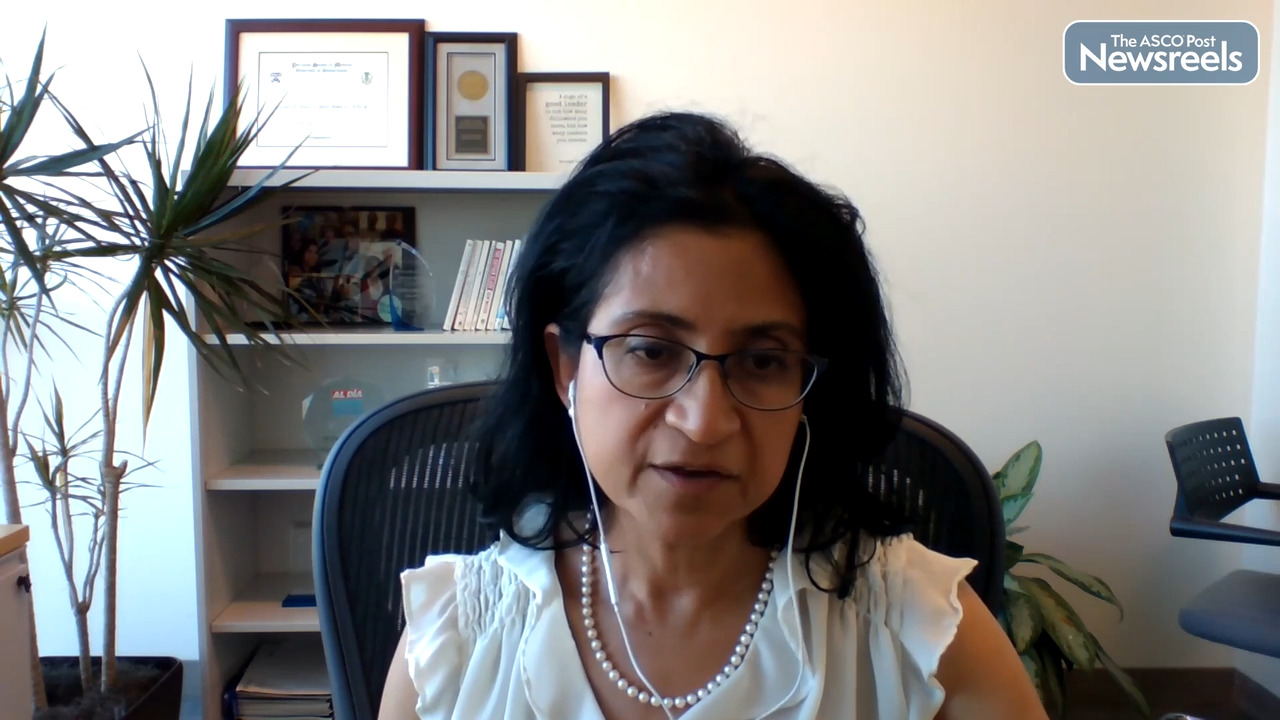Catherine C. Coombs, MD, on B-Cell Malignancies and Long-Term Safety of Pirtobrutinib
2023 ASCO Annual Meeting
Catherine C. Coombs, MD, of the University of California, Irvine, discusses prolonged pirtobrutinib therapy, which continues to demonstrate a safety profile amenable to long-term administration at the recommended dose without evidence of new or worsening toxicity signals. The safety and tolerability observed in patients on therapy for 12 months or more were similar to previously published safety analyses of all patients enrolled, regardless of follow-up (Abstract 7513).
Transcript
Disclaimer: This video transcript has not been proofread or edited and may contain errors.
Catherine C. Coombs:
BTK has proven to be an invaluable target of inhibition for the treatment of a number of B-cell malignancies. However, the use of BTK inhibitors is dependent upon their continuous administration. Therefore, safety and tolerability are paramount importance to maintain maximal efficacy. In this abstract, we reviewed the long-term safety data of Pirtobrutinib from the Phase 1/2 BRUIN trial. The trial design enrolled patients with a number of B-cell malignancies. The entire safety population was over 700 patients. However, in this post-hoc analysis, we reviewed the patients on treatment for over a year, which amounted to 326 patients. As one would expect, this population was enriched for patients with the more chronic B-cell malignancies, and so the largest population was CLL and SLL though there were about 40 patients with mantle cell lymphoma and Waldenström's macroglobulinemia. The safety aspects that were reviewed included all of the common side effects from this drug, which fortunately were very uncommon, especially grade three or higher AEs.
In reviewing treatment exposure adjusted AE rates, what we determined was that in comparing patients on the drug for over a year compared to the entire safety population, there does not appear to be an increased risk in toxicity for patients that are on the drug for longer periods of time. This is further supported by the low incidences of discontinuation for the drug, especially in those patients who were on the drug for over a year where only 1.2% of patients discontinued due to side effects. In addition, regarding the class effects of BTK inhibitors that we worry about, the incidences of atrial fibrillation, bleeding, and hypertension were all extremely low and did not suggest a temporal relationship to Pirtobrutinib. In conclusion, we can see that now with long-term administration of Pirtobrutinib, this drug is exquisitely safe and can inhibit its target, BTK, for maximal benefit to our patients with these malignancies.
Related Videos
The ASCO Post Staff
Rami Manochakian, MD, of Mayo Clinic Florida, offers his perspective on the new phase III findings on osimertinib, a third-generation, central nervous system EGFR tyrosine kinase inhibitor, which demonstrated an unprecedented overall survival benefit for patients with EGFR-mutated, stage IB–IIIA non–small cell lung cancer (NSCLC) after complete tumor resection, with or without adjuvant chemotherapy (Abstract LBA3).
The ASCO Post Staff
Tycel J. Phillips, MD, of City of Hope National Medical Center, and Emanuele Zucca, MD, of the Oncology Institute of Southern Switzerland and the International Extranodal Lymphoma Study Group, discuss findings from the largest prospective study of patients with primary mediastinal B-cell lymphoma. The trial data support omitting radiotherapy in patients who achieve complete metabolic response after immunochemotherapy (Abstract LBA7505).
The ASCO Post Staff
Sarah K. Tasian, MD, of Children’s Hospital of Philadelphia, summarizes three studies presented at ASCO: genomic determinants of outcome in acute lymphoblastic leukemia (ALL), a phase III trial of inotuzumab ozogamicin for high-risk B-cell ALL, and preliminary results from the first-in-child phase II trial of bosutinib in pediatric patients with newly diagnosed chronic myeloid leukemia (Abstracts 10015, 10016, and 10017).
The ASCO Post Staff
Smitha Krishnamurthi, MD, of the Cleveland Clinic, and Deb Schrag, MD, MPH, of Memorial Sloan Kettering Cancer Center, discuss phase III findings from the PROSPECT trial, which showed FOLFOX chemotherapy with selective use of radiation therapy and sensitizing fluoropyrimidine (5FUCRT) is noninferior to 5FUCRT for the neoadjuvant treatment of patients with locally advanced rectal cancer, prior to low anterior resection with total mesorectal excision (Abstract LBA2).
The ASCO Post Staff
Carmen E. Guerra, MD, MSCE, of the University of Pennsylvania Abramson Cancer Center, discusses three key abstracts presented at ASCO: strategies to increase accrual of underrepresented populations in Alliance NCTN trials, how patient-clinician education can strengthen partnerships and improve diversity in breast and lung cancer trials, and mediators of racial and ethnic inequities in clinical trial participation among U.S. patients with cancer from 2011 to 2022 (Abstracts 6509, 6510, 6511).
